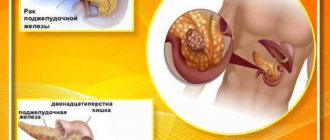- No feeling of fullness after eating: reasons
- Why there is no feeling of fullness: reasons and ways to deal with constant hunger
- Why there is no feeling of fullness: advice from nutritionists
Every third person faces the problem of not feeling full after eating.
This is especially true for those who stick to a diet, but sometimes hunger after eating can also signal various problems in the body, and this can and should be dealt with.
Reason 1. Skipped or cut breakfast
You should never skip breakfast! – any nutritionist and healthcare worker will tell you about this. All this has been proven by scientific research and supported by facts that cannot be disputed.
With breakfast, blood sugar and insulin levels are maintained within normal limits. It is for this reason that a person feels full throughout the working day. In addition, breakfast significantly reduces hunger and controls gluttony.
Important! Eating breakfast increases your metabolic rate, which starts burning calories faster.
Mechanism of formation and algorithm for assessing hunger
The signal that it is time to eat is given to us by the brain, or rather by the food center located in the hypothalamus. The receptors located there determine that the glucose level in the blood has decreased and send a signal that it needs to be restored. Actually, this is the feeling of hunger, which is a normal physiological reaction.
After eating, a person feels full, the formation mechanism of which consists of three stages:
- Primary satiety occurs almost immediately, at the beginning of the meal. The amylase enzyme contained in saliva breaks down simple carbohydrates, which are absorbed in small quantities immediately in the oral cavity. This leads to an increase in glucose levels, partially reducing the activity of the hypothalamic center.
- Secondary saturation is associated with irritation of mechanical receptors, which occurs when the walls of the stomach are filled and stretched. A nerve impulse from the stomach sends a signal to the brain, which we perceive as a feeling of fullness or overcrowding.
- Tertiary saturation occurs after carbohydrates entering the stomach are broken down and absorbed into the blood. As a result, the glycemic level increases, completely eliminating the activity of the hypothalamic center. Only now does a person feel complete saturation.
The process of enzymatic breakdown and absorption of carbohydrates in the stomach takes 15-20 minutes, so the feeling of fullness will not come earlier, regardless of the volume and nutritional value of the food.
You should not pay attention to the feeling of hunger in the stomach after eating, the reasons for which are explained by the speed of physiological processes in the body. Saturation that occurs 20 minutes after the start of a meal is the norm, and this situation does not require correction.
photo from the site medapteka.net
To determine if you are truly hungry, consider the following:
- How long has it been since you ate? If less than 20 minutes have passed since you started eating, a slight feeling of malnutrition should not be embarrassing. Hunger should occur 3-4 hours after a meal - this is the period of time it will take for nutrients to be digested and absorbed, as well as their consumption for vital functions or storage in the form of fat deposits.
- Composition and serving size. Each meal should contain foods that will take a long time to digest. These include proteins and slow-digesting carbohydrates, which provide long-term satiety. If the snack consisted of fast carbohydrates, then the feeling of fullness comes quickly, but also ends quickly.
- Characteristics of hunger. The desire to eat develops gradually and intensifies as blood sugar levels decrease. A normal feeling of hunger is accompanied by rumbling in the stomach and sucking in the pit of the stomach. There is also an emotional, frequent feeling of hunger, the causes of which lie in the psychological plane. In this case, the desire to eat arises suddenly and is not accompanied by physical manifestations.
Reason 3. Lack of sleep
Almost every person has had problems sleeping. Insomnia is common among most of the population. It doesn’t matter what reason led to this, but poor sleep significantly affects hunger and appetite. As a result, you may notice the acquisition of extra pounds.
According to recent studies, when you don't get enough sleep, you tend to eat large amounts of unhealthy carbohydrates. Therefore, you should take care of your health and go to bed on time.
Why there is no feeling of fullness: advice from nutritionists ^
To get rid of a constantly increased appetite, you must adhere to special rules:
- Eat often (every 2-3 hours), but in small portions;
- Get up from the table with a feeling of slight hunger;
- Avoid eating sweets, flour, fried and smoked foods: such foods cause obesity and other health problems;
- Lead an active lifestyle: it has been proven that sedentary people very often suffer from obesity due to overeating;
- Use healthy foods in your diet: fruits, vegetables, berries, lean fish and meats, herbs, legumes, mushrooms. They supply the body with all the necessary vitamins and perfectly fight appetite.
Horoscope for today and tomorrow for all zodiac signs: forecast of what awaits in love, career, finances, health
Reason 4. Not drinking enough water
Water is a source of life that helps the body function normally. Limited consumption of this liquid can cause an increase in appetite and a constant feeling of hunger. Very often the body confuses thirst with hunger. Therefore, a person overeats and constantly wants to eat.
To prevent this from happening, at the slightest sign of hunger you should drink a glass of water. If it does not go away after a while, then this is a signal to eat.
Important! During the day you need to drink about 1.5-2.5 liters of water, depending on your body type.
How to get rid of constant hunger
The first thing you need to do is figure out what its source is.
- A disease means you should see a doctor and get treatment;
- Psychosomatics – get rid of stress, groundless fears, come out of the shadows onto the bright side of life;
- Violation of the regime - try to comply with it, adhering to a healthy lifestyle.
If all of the above does not apply to you, but the feeling of hunger still does not go away, depriving you of peace, try to fight the bad habit of continuously chewing, using psychological tricks. This will help trick the brain and reduce the feeling of emptiness in the stomach:
- eat food while sitting, slowly, without a book or TV;
- consume food consciously, chewing slowly, this way satiation occurs faster;
- use small plates, so the portions will seem larger;
- give up spices that stimulate the appetite, but lay out the dish beautifully and decorate it.
Herbal decoctions of mint, parsley, fig compote, and plums help suppress the appetite.
After each meal, rinse your mouth with mint mouthwash.
Before going to bed, if you feel a lot of pain, drink warm water with a spoon of honey. This will give a feeling of fullness in the stomach, and glucose, once in the blood, will signal the brain about satiety.
Try to fill your free time with important things so that you are distracted and forget about food.
If your route to work passes by a bakery or candy store with a generous display of sweets and pastries, change the route so as not to be tempted, nor to irritate your imagination, nor expose your weak will to temptation.
No appetite with gastritis
When a person suffers from chronic gastritis and experiences pain after lunch, he often loses interest in food. Thus, an unhealthy digestive system tries to protect itself from unnecessary work. But the body still continues to need nutrients and vitamins.
Protect yourself from stress, which can also kill interest in food. Nervous tension with gastritis can manifest itself in loss of appetite. Another common cause of loss of appetite is physical inactivity. You may have noticed that if, say, on Sunday, you sit at home all day in front of the TV or at the computer, lunch and dinner turn out to be undesirable: you get bored at the table for a long time and pick at your plate without any enthusiasm. Don't be lazy, move.
Walk to the store and to your place of work, run in the morning, and do exercises. For an overweight person who has not done any gymnastics for a long time, simple physical therapy for gastritis is ideal.
Nutrients in foods
The first thing you should do is check the nutritional content of the foods you eat. It also depends on your metabolism in the body. If you eat foods that are instantly digestible (simple carbohydrates: pasta, yeast bread), then your body will again require food in an hour. But you can properly saturate the body with the help of this trinity: proteins, dietary fiber, and healthy fat. Fiber is what supplies the body with essential nutrients. Protein gives you a feeling of satisfaction from food. But healthy fats help keep you feeling full for a long time.
Reasons why you constantly want to eat
If you notice that you eat enough food, but after 2-3 hours you rush to the refrigerator or to the store, then this may be a sign of illness, here are some of them:
- Diseases of the body. Do not rush to take everything personally; without consulting a doctor, it is impossible to determine the diagnosis. But you shouldn’t delay going to the doctor; hunger may indicate the presence of diseases such as: hyperrexia - a neurological or neuroendocrine disease in which hunger is uncontrollable; stomach ulcer and gastritis with high acidity; benign and malignant tumors; hyperthyroidism - a disorder of the thyroid gland; diabetes.
- Too much fast carbohydrates. It's impossible to resist a box of donuts. And one is not enough to enjoy the process. But here’s a paradox: the more you eat, the more your body will ask for sweets. A large amount of fast carbohydrates causes blood sugar to rise and then quickly fall. Having received stress, the body tries to restore balance and asks for another cookie. Stop the vicious cycle: add extra sweetness and treat your body.
- “Eating problems and joys.” This is called psychological dependence. If you are having problems at work, school, in relationships, or just in a bad mood, and you immediately reach for the refrigerator to somehow calm yourself down. Or, on the contrary, they received a salary increase, passed the exam, and decided, as always, to please you with another chocolate bar? This is how your body gets used to the fact that life events equal food and constantly asks for food.
- Lack of proteins and fats. Carbohydrates only tease the body, and after a short period of time you want to eat again. Another thing is proteins and fats, saturated with all the necessary components for complete saturation.
- Irregular eating. If you skip breakfast, you will sweep the floor of the refrigerator at lunch, and this will not make you feel good. But after a while the situation will repeat itself. If you constantly skip meals, the hunger hormone ghrelin is produced, which sends signals to the brain that your stomach is empty.
- Photos of food. Social networks beckon with content, especially if there are photos of juicy chicken thighs or a video of how a hamburger is prepared. Looking at the photo, the same ghrelin is produced, a real feeling of hunger is produced.
- Bad dream. An unbalanced diet can disrupt hormones, which in turn disrupt the functioning of leptin and ghrelin, which makes you want to snack constantly.
- Dehydration. The hypothalamus is associated with feelings of hunger and thirst and sometimes we can misunderstand it. If you have eaten and after a while you want to eat, then try to drink water; if after 15 minutes the feeling of hunger does not go away, then it is he, and not the feeling of thirst.
- Taking medications. Medicines such as antidepressants and corticosteroids can cause abnormal appetite. If this is your situation, talk to your doctor about changing your medications.
- Diets, fasting. Everything is clear here. Don’t torture yourself, your body will pay for trying to be slimmer. A balanced diet is a thousand times better and more effective than various strict diets.
Remember that in most cases everything depends on the rhythm of life and eating becomes a habit. You are able to control your food intake and train your body to accept food correctly.











